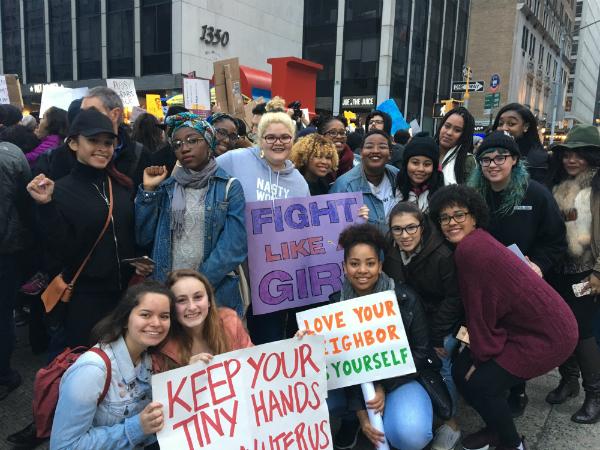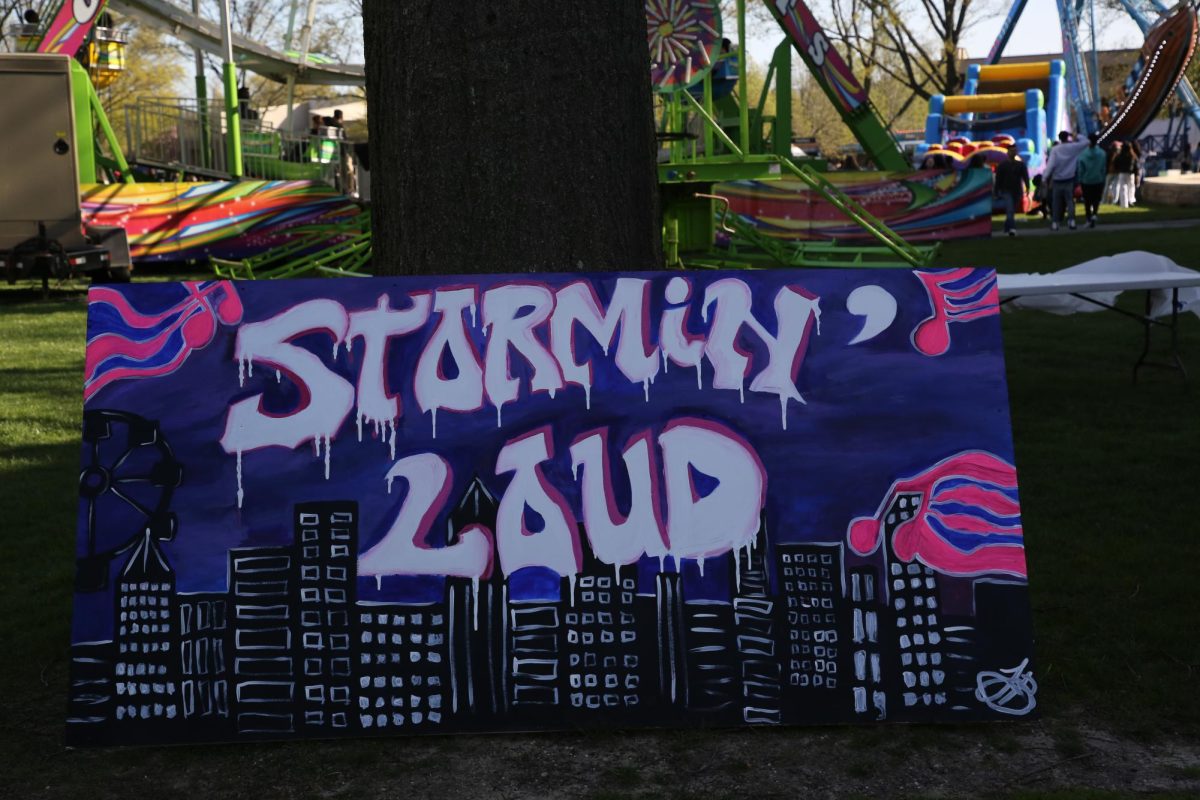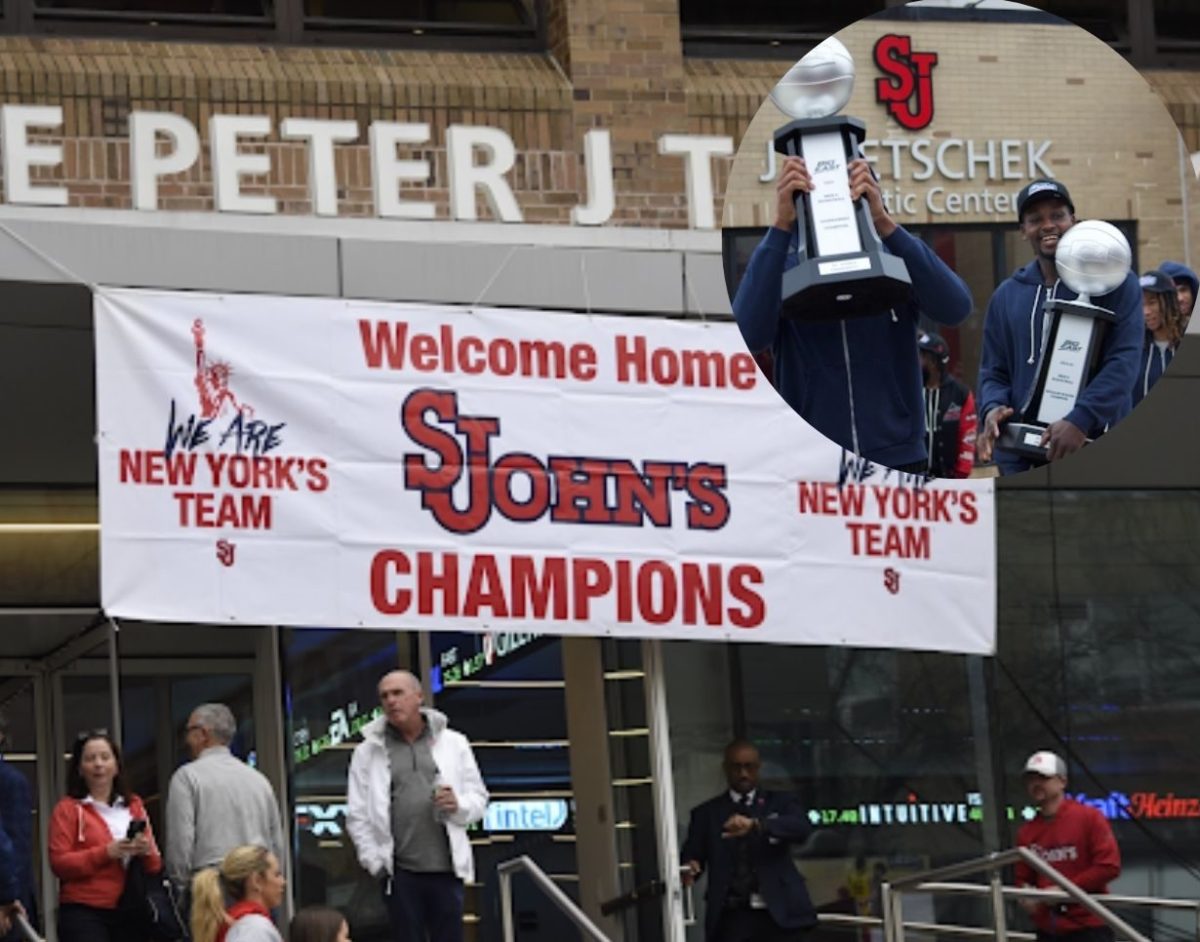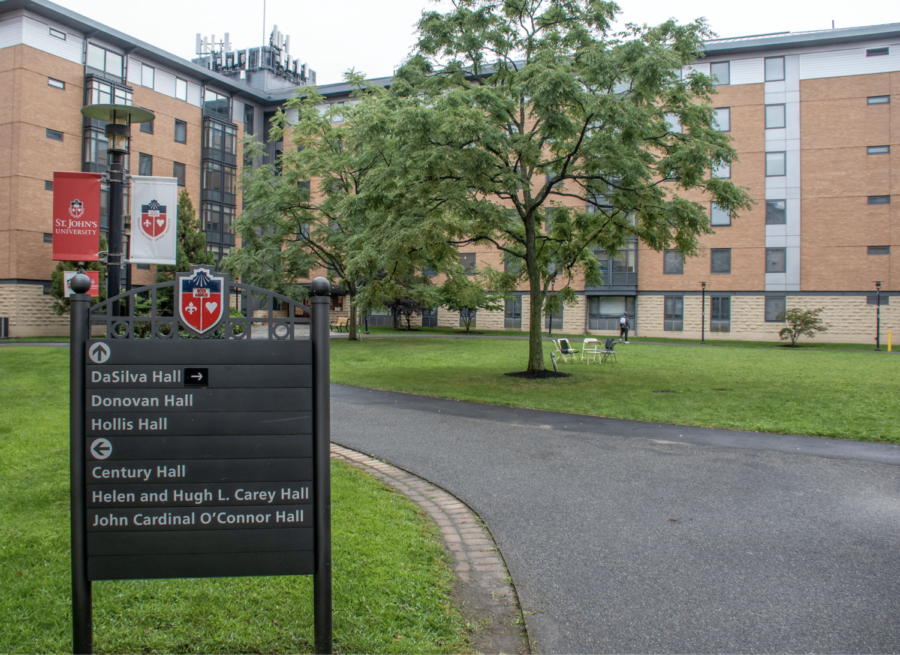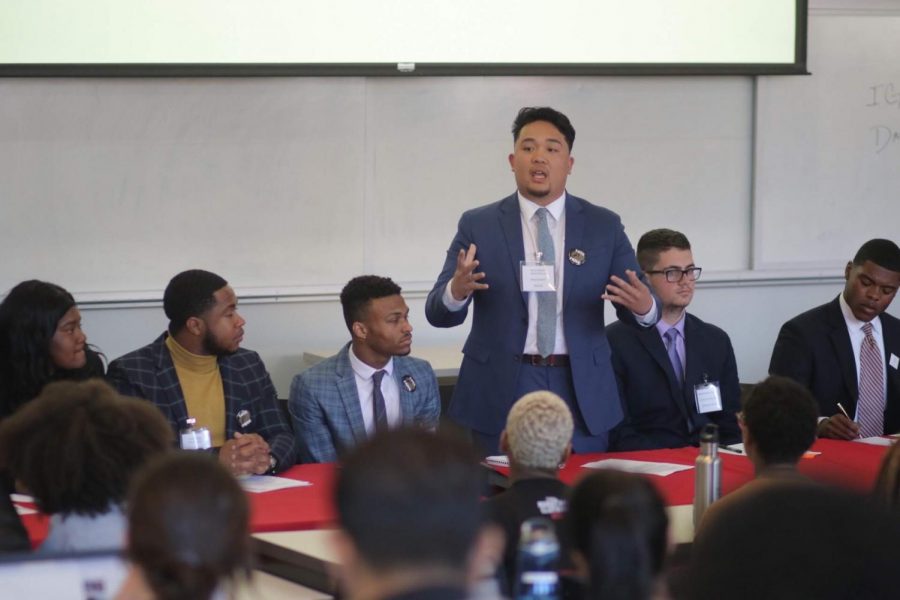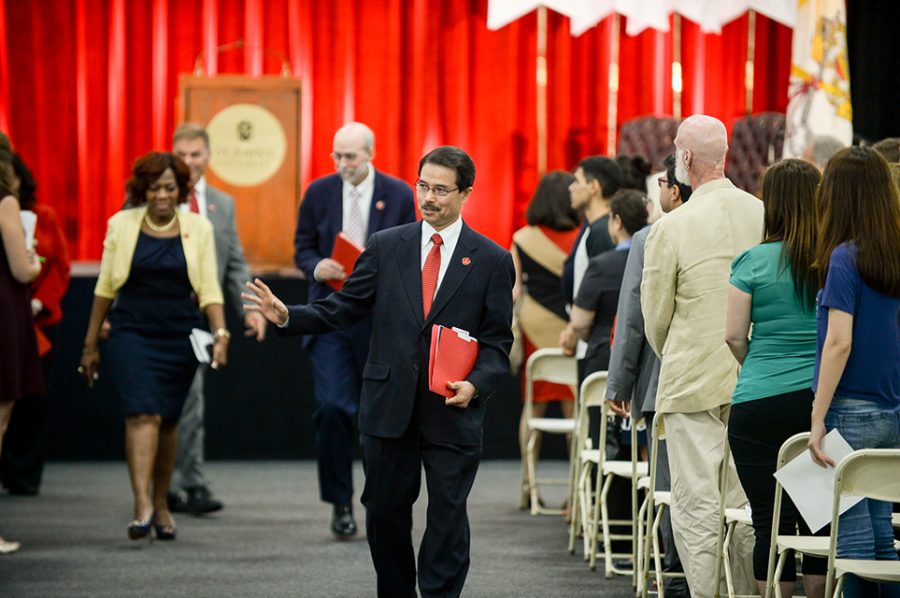Washington D.C. — “The People United Will Never Be Defeated” was the message spread by hundreds of thousands of people last weekend, including some St. John’s students and groups, as Women’s Marches took place across the globe.
Dozens of St. John’s University students participated in the New York City sister march, which Mayor Bill de Blasio’s office said more than 400,000 people attended, as well as the Washington D.C. march.
A group of students from College Democrats went to the Washington D.C. march, while students representing Feminists Unite, one of the University’s newest organizations, attended New York City’s march.
Students unaffiliated with groups on campus also attended.
Paige Shatola, the treasurer of College Democrats, said she attended the D.C. march because she didn’t like waking up after Election Day feeling “hated and alone.”
“Before the election of 2016 I thought that America’s progress towards equal rights for all may be slow and hard won but would be the destined result of a fair democracy. I had faith that progress made over centuries of compromise and loss could not be reversed,” Shatola said. “Yet I woke up on Nov. 9 feeling hated and alone in a world I never wanted to believe existed. That’s why I needed to attend.”
The mission of the Women’s March on Washington D.C. and sister marches on New York City and Los Angeles was to “stand together in solidarity… for the protection of our rights, our safety, our health, and our families – recognizing that our vibrant and diverse communities are the strength of our country,” according to the march’s official website.
The marches were held simultaneously on Saturday, Jan. 21, following the inauguration of Donald J. Trump as the 45th President of the United States.
Sieta Leon, a Spanish and International Business major, said she marched in the New York City march because of the “dangers that people of color, women, undocumented immigrants, LGBTQ and I face under this new president.”
“It felt amazing to see so many women showing their emotions without censoring themselves,” Leon said. “I feel like now it’s important that we reassure that we will not let ourselves be oppressed or anyone else for that matter.”
Feminists Unite (F.U.) also marched in the New York City march.
“The original intent of the march, as organized in resistance to a racist and misogynistic government, is aligned with the beliefs of F.U.,” Stephanie Aliaga, president of the organization, said. “The women’s march was one of the largest international days of protest in modern history and it was important for us to participate and be able to share that experience with SJU students and F.U. members.”
Shatola, the treasurer of College Democrats, said she views the march as an affirmation that “progress towards equality does not give up in the face of adversity and ‘alternative facts.’”
She said that while many feel that their securities have been voted away, she and other marchers shared a belief that their convictions had not.
The Women’s March began with a Facebook post by Rebecca Shook, a retired lawyer living in Hawaii, according to the Boston Globe.
On Nov. 9 Shook expressed frustration online towards the presidential election, as well as a desire to march on Washington against its results.
The suggestion to protest the presidential election results went viral overnight, and more than 10,000 women pledged their commitment to march at the capital.
And it didn’t end there.
From Mexico City to Paris, people of all genders, cultures and socio-political concerns came together on Saturday in numbers too large to obtain official counts.
There were more than 600 sister marches held across the country and worldwide, according to USA Today, comprising of an estimated 2.6 million people.
The Washington Post reported the Women’s March on Washington D.C. represented the metro’s second busiest day ever, behind only the January 2009 inauguration of former president, Barack Obama.
Signs and banners reading “Love Trumps Hate,” “Equal Rights For All,” “Nasty Women Are The Future” and “Get Your Tiny Hands Away From My Uterus” were displayed amid a sea of pink knit hats resembling cat ears.
The dense numbers of the march on Washington D.C. made the protest route so difficult to navigate that some participants were physically unable to continue the march path toward the National Mall.
In response to the demonstrations, President Trump tweeted the next morning, “Watched protests yesterday but was under the impression that we just had an election! Why didn’t these people vote? Celebs hurt cause badly.”
Despite the President’s criticism that celebrity appearances — such as Alicia Keys, Gloria Steinheim and America Ferrera — diminished the efforts of the march, in the day following the protest womensmarch.com launched a new campaign. Called “10 Actions, 100 Days,” it aims to offer 10 positive actions people can take during the first 100 days of the new presidency.
The website urges those moved by the protest to continue their activism by writing to their senators and local legislation about political and social topics of concern to them personally.
Suzanne Ciechalski, Angelica Acevedo and Ariana Ortiz contributed to this story.


